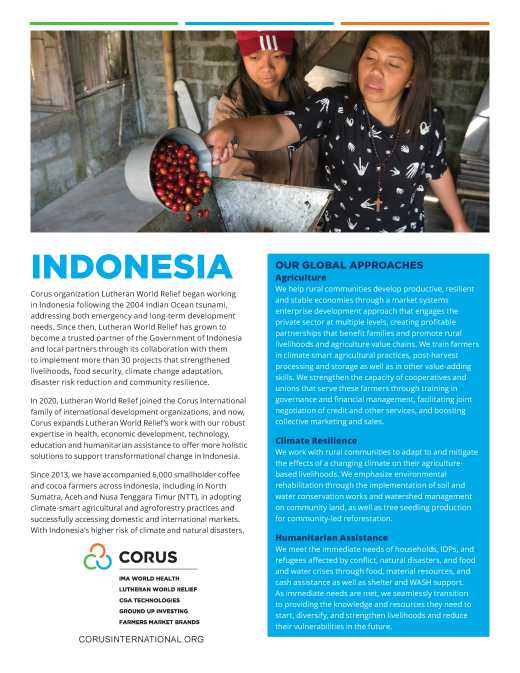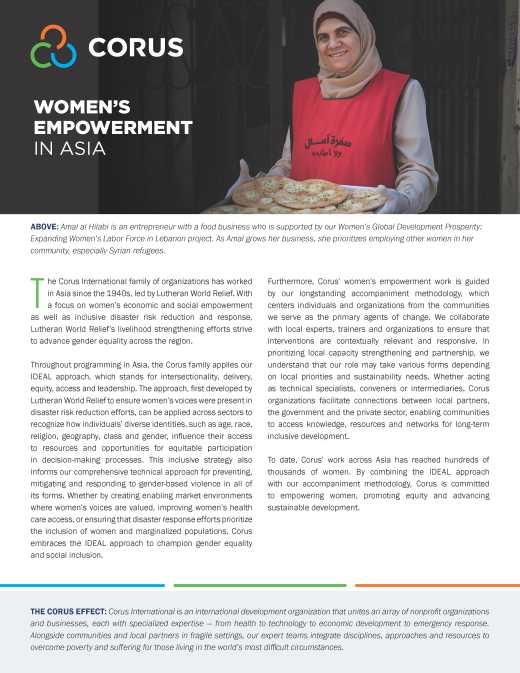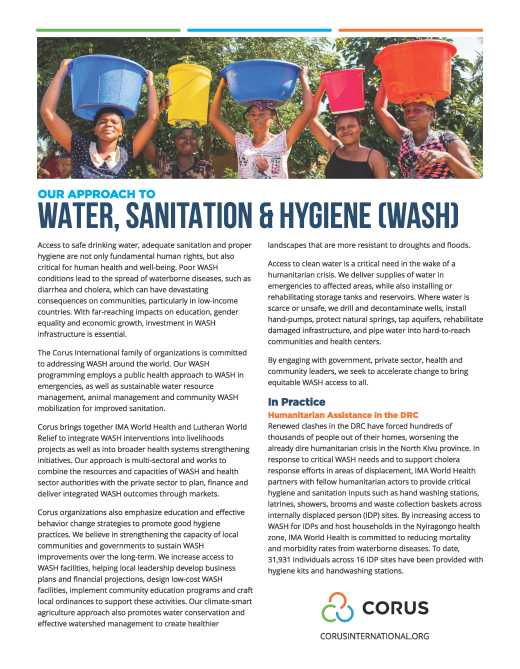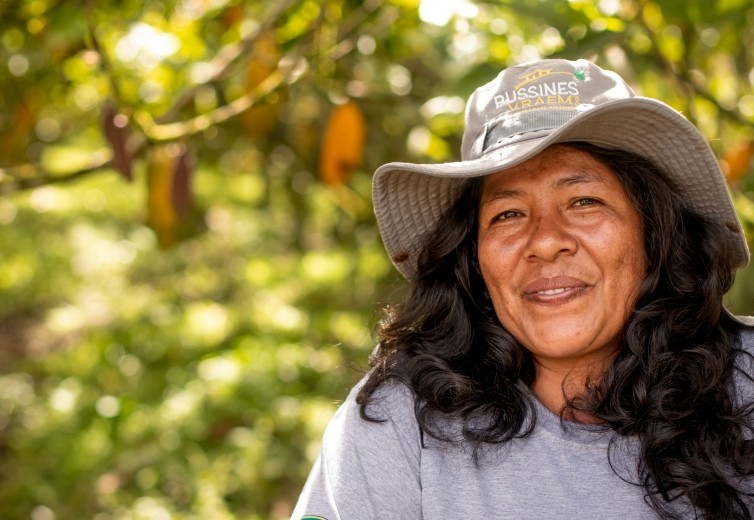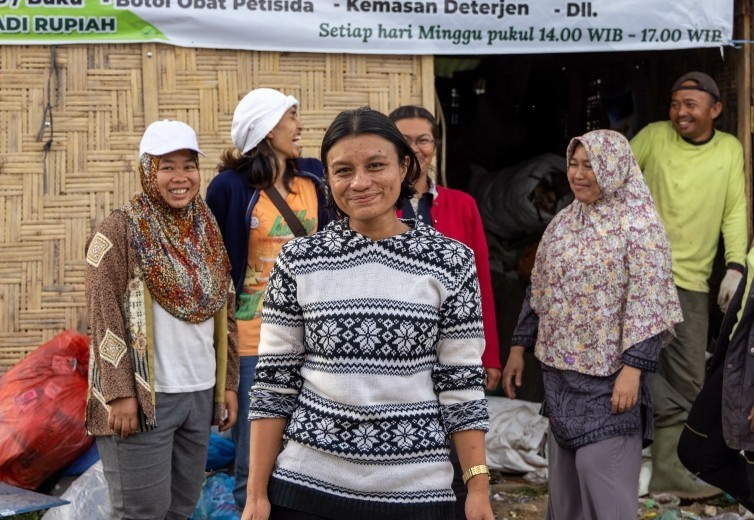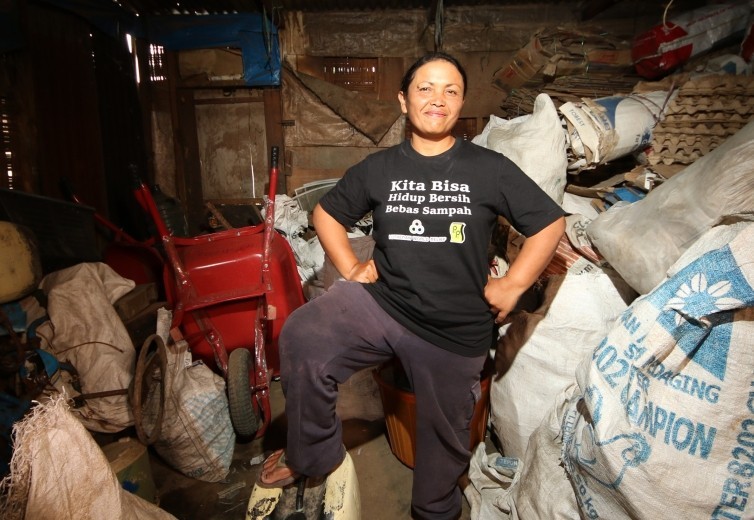Our Work in Indonesia
Lutheran World Relief began working in Indonesia following the 2004 Indian Ocean tsunami, addressing both emergency and long-term development needs. Since then, Lutheran World Relief has grown to become a trusted partner of the Government of Indonesia and local partners through its collaboration with them to implement more than 30 projects that strengthened livelihoods, food security, climate change adaptation, disaster risk reduction and community resilience.
In 2020, Lutheran World Relief joined the Corus International family of international development organizations, and now, Corus expands Lutheran World Relief’s work with robust expertise in health, economic development, technology, education and humanitarian assistance to offer more holistic solutions to support transformational change in Indonesia.
Since 2013, we have accompanied 6,000 smallholder coffee and cocoa farmers across Indonesia, including in North Sumatra, Aceh and Nusa Tenggara Timur (NTT), in adopting climate-smart agricultural and agroforestry practices and successfully accessing domestic and international markets. With Indonesia’s higher risk of climate and natural disasters, we have repeatedly responded to humanitarian needs across the archipelago, such as food and non-food items (NFIs) provision, building shelters with child-friendly spaces, and training local resources in post-disaster psychosocial treatment. During the COVID-19 pandemic, we provided personal protective equipment (PPE) to health providers and patients. Our most recent work supports coffee farming communities in North Sumatra where we promote women’s leadership and improved WASH practices and disaster risk management at the local government, community, and household-levels.
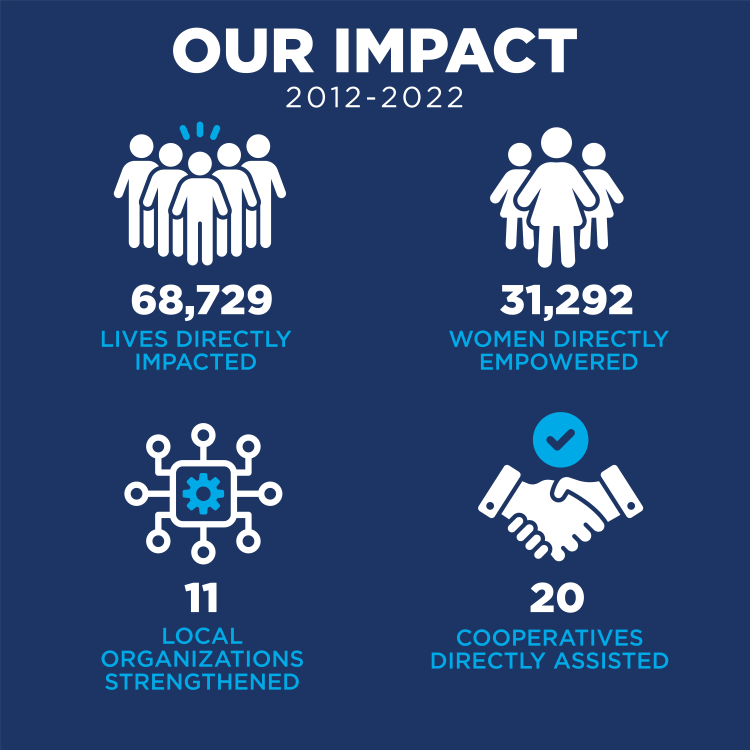
PROJECT HIGHLIGHTS
The Starbucks Foundation-funded MECIHO project empowers women and improves the health, hygiene and living conditions of households and communities in Indonesia’s coffee-growing areas of Karo Regency. The MECIHO project has two key objectives: 1) strengthened women’s leadership on and engagement in governance initiatives and 2) support for the advancement of healthier homes and better living conditions. As a result, community resources for improved WASH, such as garbage banks and latrines will be in place, and the local government will be more responsive, particularly to women’s needs, with the understanding that healthier environments enhance nutrition outcomes. MECIHO will directly benefit 8,183 people and empower 4,605 women to improve health, hygiene, and living conditions for themselves and their families. MECIHO builds off the success of the Kopi Nande project.
The Starbucks Foundation-funded Kopi Nande project reached over 26,000 individuals (15,000 women) in five communities across Karo Regency to promote health and hygiene through women-led approaches. The project engaged women’s groups and trained them through a series of workshops on women’s leadership, governance, management, strategic planning, asset-based community development, business planning, financial literacy, and community mobilization.
Volunteers from the women’s groups were recruited into cadres who were trained in key water and sanitation messages, which they spread through their communities during monthly seminars, including in schools. The volunteers also were trained in home-based composting, creating home gardens and improving water storage.
The project included the construction of 18 community water and sanitation facilities spread across five communities as well as the installation of coffee bean washing stations or wet mills in each of the five villages to reduce the water pollution that results from dumping the wastewater from the coffee washing process into local waterways.
The RESOPA project successfully assisted 645 farmers in Pangkep Regency in independently producing and maintaining biogas from organic farm waste and using it to produce organic fertilizers and as an alternative form of energy. The project also helped farmers increase their income by improving their access to markets and strengthening farmers’ group capacity in business development.
Give Where Needed Most
Make sure your gift goes directly to where it's most needed without delay, with a secure online donation.



